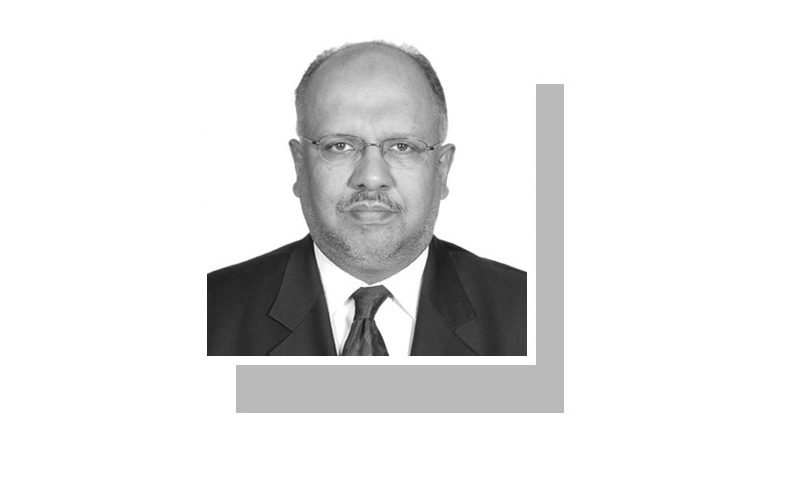
A DISMAL response to recent notices sent by Pakistan’s top tax collector — the Federal Board of Revenue (FBR) — to more than 400 individuals who owned shares in offshore companies, carried a familiar ring. Less than a fifth of the targeted individuals chose to reply, echoing an all too familiar defiance of the rule of law.
In a country surrounded by a growing crisis of governance and increasing failure to force the law, last year’s chance discovery of colossal wealth in offshore havens belonging to wealthy Pakistanis, finally raised hope for tightening the noose around the high and mighty.
Yet that long-awaited moment of hope is in danger of ending up as nothing more than a promising blip, preceded and followed by darkness all around. Exactly why do many affluent Pakistanis carry just contempt for their country’s tax authorities? That’s a riddle which shouldn’t be hard to solve.
As long as enforcement of law across Pakistan remains slightly more than simply pathetic for those with clout, there will always be little hope for even the beginning of sustainable and progressive change. These days, the proceedings in the Supreme Court surrounding the matter of Panama leaks in relation to Prime Minister Nawaz Sharif’s three children, and indeed his own subsequent explanation over the issue, has gripped the headlines day after day.
The path to reform must begin with a cleanup at the top.
The outcome of those proceedings will not be irrelevant for the future of the path to reforming the country. At the very least, establishing a powerful precedent to probe individuals with clout is essential for the creation of any self-respecting and law-abiding state.
On a much wider scale beyond just the Panama leaks however, battling corruption and enforcing the law remains ultimately consequential for the future of Pakistan. A mix of evidence ranging from anecdotal to statistical has time and again demonstrated Pakistan’s prospects simply heading southwards as the cause of law abidance has weakened over time.
The degree of economic criminality has been far too obvious in the shape of a chronic inability to force affluent Pakistanis to pay their dues. The fact that less than one per cent of Pakistan’s population pays an income tax and the tax-to-GDP ratio continues to trail well behind desirable levels, is telling with regard to the way the country has evolved.
The consequences of that failure are evident all around. Across Pakistan, pathetically dysfunctional state provided medical services and educational institutions are a common sight. Aside from the few showcase projects funded by the state in the name of serving humanity, increasingly expensive private providers of health care and education have only added to the financial burden on average households.
In brief, the state’s abdication of its core responsibilities will continue to haunt the future of Pakistan unless the idea of enforcing rule of law becomes a central feature of governance across the board. However, the path to reform must begin with a long overdue cleanup at the top.
The case before the Supreme Court therefore must proceed in tandem with a body like the FBR publicly disclosing the names of members of parliament and provincial legislatures who are legitimate taxpayers as a regular feature. Meanwhile, those who do not figure in such a list must immediately be compelled to come out clean on their incomes and tax liabilities. Whatever pressure the government may put on politicians is often a result of IMF demands — when dealings with the lending body are at their minimal, the pressure subsides.
While the focus is placed on the ruling structure, it will be vital to tighten the squeeze on known tax dodgers beginning with the non-compliers of FBR’s notices in relations to owners of offshore companies. A failure by the Pakistani state to finally mean business on matters related to tax evasion will simply take the country further into an inevitably chaotic future.
What is, however, definitely known on the continuing present road is hardly comforting. Pakistan will continue to become increasingly indebted and weak in tackling its multiple challenges. An increasingly pauperised state will neither have the capacity to meet the security threats from its neighbourhood nor the ability to meet the fundamental needs of its people.
Meanwhile, enforcing the rule of law today is evident nowhere more than the circumstances thrown up with the case of a 10-year-old girl — a domestic servant, badly tortured while living in servitude at the home of an honourable judge in Islamabad. If indeed those found guilty are taken to task, there will be relief all around.
And yet, such a resolution will not end the miseries of daily life surrounding scores of other Pakistanis living in distress. They are the worst victims of the growing absence of the rule of law. The results of not complying with the latter at the top tier of the ruling structure trickles down to other parts of society.
The writer is an Islamabad-based journalist.
Published in Dawn, January 10th, 2017































